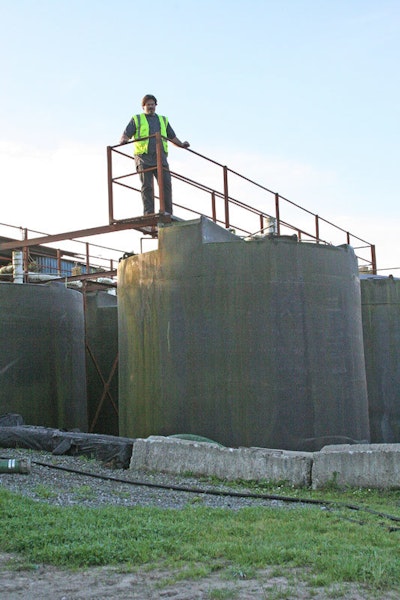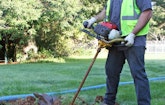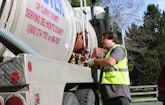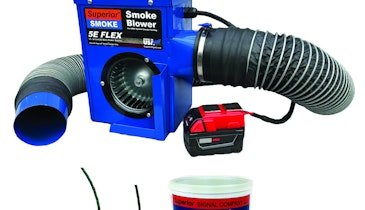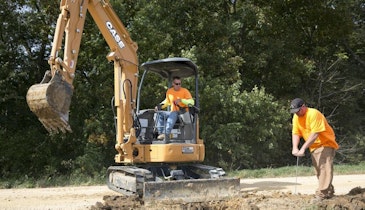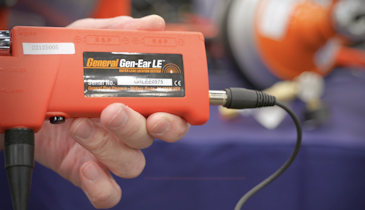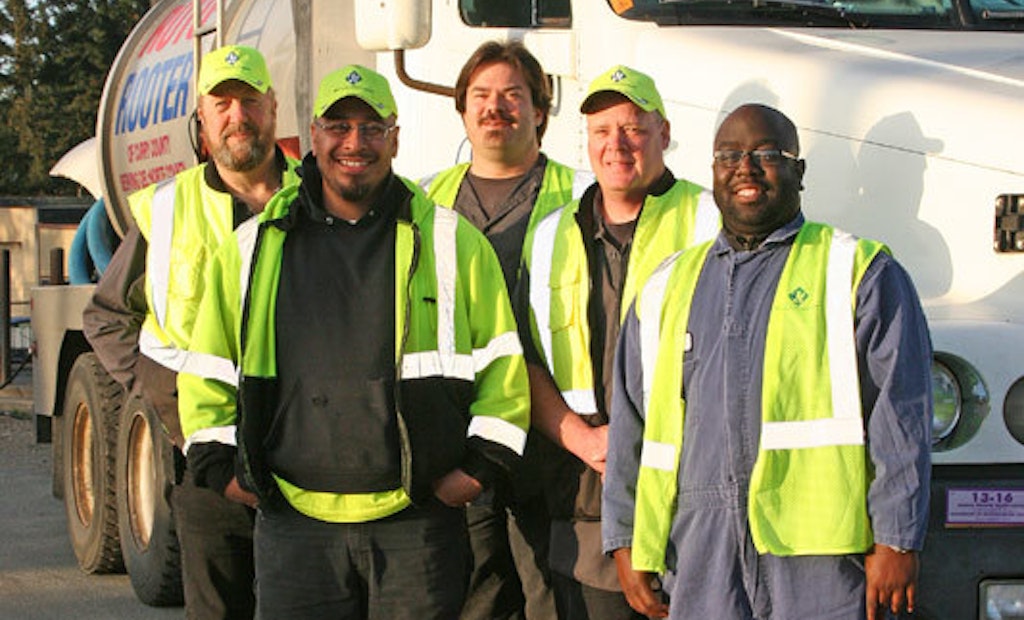
Interested in Plumbing?
Get Plumbing articles, news and videos right in your inbox! Sign up now.
Plumbing + Get AlertsAdapting to challenging conditions comes with the territory for many septic service contractors. That’s especially true for Al Kenney, the on-site manager of Roto-Rooter of Curry County in Oregon and Roto-Rooter of Del Norte County in northern California, and his employees.
Kenney and his crew routinely contend with treacherous pumping routes, problematic dumping restrictions and nearly nonstop rain November through June. It’s all in a day’s work for the company, which provides septic tank pumping, drainline cleaning and inspections, and portable sanitation. (The two franchises are owned by solid-waste services provider Waste Connections Inc.)
The versatile technicians serve a broad area of northern California and coastal southwestern Oregon. Much of the territory is rural and accessible only by substandard logging or U.S. Forest Service roads. In many small towns, homeowners live outside of city limits, so most utilize onsite systems.
“The terrain is very hard on our equipment … we often have issues with ball joints, tires and the occasional broken spring,” Kenney says. “We traverse very mountainous roads. For a job that’s just 30 miles away, it might take 25 minutes to drive most of the way, then 25 minutes to drive the last five miles.”
THE LONG HAUL
When technicians arrive at a job, the steep terrain might continue to pose challenges. Kenney says he bought a 3-inch Power Booster, made by Pressure Lift Corp., which makes it easier to pump materials longer distances at higher elevations. In addition, each of the company’s three septic vacuum trucks carries five sections of 30-foot-long hose to more easily reach hard-to-access tanks.
“I bought the booster for a job where we had to use eight 30-foot-long hoses and the tank was located 35 feet below the truck – probably at about a 25 percent grade,” he explains. “To make it worse, the tank hadn’t been pumped in 20 years, so the sludge was very thick. Without the booster, we wouldn’t have got it done.”
Kenney learned years ago to ask new customers detailed questions about their driveways. Are they steep? Do they include a lot of switchbacks? Are they gravel or asphalt? “We don’t want to send someone 20 miles away for a job, only to find out our guy can’t even get the truck up the driveway,” Kenney says.
Large amounts of rainfall – 100 inches a year is not unusual – also can play havoc with operations. “The first thing I do when I get in is look at the weather – not just for today but for 10 days down the road,” he says.
Portable sanitation delivery drivers have to be thoughtful about where they set up restrooms. A location that might be accessible in summer could be flooded out after the rainy season begins. “When it starts raining, you might not get to [poorly placed restrooms] for months,” Kenney says.
EQUIPMENT UP TO THE CHALLENGE
About 60 percent of the company’s gross revenue comes from septic pumping, with drain cleaning contributing 30 percent and portable restrooms accounting for the remainder. Septic pumping volume is about 70 percent residential and 30 percent commercial (motels, apartment complexes and mobile-home parks, including one with five 4,000-gallon tanks that gets pumped every two years). The company also pumps municipal wet wells when pumps fail, Kenney says.
The variety of work requires an array of equipment. On the septic side, the company runs a 1997 Freightliner with a 3,900-gallon steel tank; a 1999 Freightliner with a 3,600-gallon aluminum tank built by FMI Truck Sales & Service; and a 1994 White/GMC with a 3,600-gallon steel tank.
On the restroom side, the company runs a 1983 International with a 1,600-gallon waste/200-gallon freshwater steel tank; a 2000 Isuzu with a 900-gallon waste/300-gallon freshwater steel tank built by FMI; a 2003 Ford with a 650-gallon waste/300-gallon freshwater stainless steel tank built by Satellite Industries; and a 2006 Ford equipped with a 1,100-gallon waste/300-gallon freshwater aluminum tank built by FMI. All trucks are equipped with Masport Inc. pumps. Both Fords feature four-wheel drive to better handle the muddy, rugged terrain. The company also owns an 8,300-gallon aluminum tanker trailer used to haul septage and biosolids.
In addition, the company owns about 400 restrooms, mostly made by Satellite Industries Inc., and portable jetters made by RIDGID, Shark (a member of Karcher North America), General Pipe Cleaners and Gorlitz Sewer & Drain Inc. The company also owns four RIDGID SeeSnake video-inspection cameras and three Crust Busters made by Schmitz Brothers LLC.
TANK SIZE MATTERS
Kenney prefers larger vacuum tanks because the company’s customer base is so far-flung. Larger tanks allow for better route efficiency and density. “With the price of fuel and everything, we found out years ago that if we can’t get more than one [tank pumped] at a time, it’s going to be awful hard to make any money, especially since we cover such a broad area,” he notes.
Drivers also receive a much smaller piece of equipment that yields big dividends in terms of efficiency: a smartphone. Kenney says texting is a big productivity booster; if a call comes in to the main office for a job and a driver is already working in close proximity to the customer, he texts the driver to add a stop to the route. “It’s convenient because if he’s got gloves on and he’s pumping a tank, he doesn’t have to stop what he’s doing,” Kenney says.
Smartphones also play a role in refuting spurious damage claims from customers. Kenney asks his drivers to always take before-and-after digital photos of driveways, particularly if they already have large cracks in the asphalt or cement.
DISPOSAL WOES
Waste disposal poses another challenge. Local municipalities in Kenney’s service areas stopped accepting septage years ago, and the only private facility that takes it is about a four-hour drive from the company’s base in Brookings, Ore. And the fee is 10 cents per gallon. As a result, it’s more cost-effective for the company to pay 20 cents a gallon to have the waste hauled to a disposal facility.
“When I tell people what we pay to have waste hauled, their eyes just about pop out of their heads,” Kenney says. “But when we crunch the numbers, it’s actually pretty much a wash [between having waste hauled away and transporting it ourselves]. So rather than put our trucks at risk for accidents and additional wear and tear, we hire a company to come and get it.”
Kenney says the company is looking for disposal alternatives. “The treatment facility we use is the only game on the coast, so if something would happen to that company, I’m not sure what everyone would do,” he notes.
The company already land-applies septage on rented ranch land; it applied about 300,000 gallons last year out of 1.3 million total gallons pumped. Kenney says land application is significantly less expensive, mainly because the rented land is about a 15-minute drive from the company’s yard.
To store waste until it can be hauled or land-applied, the company owns six 10,500-gallon plastic tanks, which are surrounded by a concrete enclosure. Two of the tanks, plus two smaller tanks, are used to isolate portable sanitation waste that is not land-applied.
AT YOUR SERVICE
With persistent downpours, the steep terrain, dangerous driving conditions and disposal issues, it’s easy to imagine Kenney and his employees must be burned out from never-ending challenges. But that’s not the case – not even close.
“Honestly, I actually enjoy being out on the trucks and helping people,” he says. “I get a thrill out of the really hard jobs … coming up with a solution to that one job that no one else can figure out. There’s a lot of satisfaction in that.
“Making people happy makes me happy, and I like to think our whole crew feels like that,” he adds. “Sometimes you get a call in the middle of the night and you don’t want to drag your butt out of bed … and go drive out there in the rain and the dark. But by the time you get to the job and see how glad people are to see you, it really makes it all worthwhile.”
MORE INFORMATION
Crust Busters/Schmitz Brothers, LLC - 888/878-2296 - www.crustbusters.com
FMI Truck Sales & Service - 800/927-8750 - www.fmitrucks.com
General Pipe Cleaners - 800/245-6200 - www.drainbrain.com
Gorlitz Sewer & Drain, Inc. - 562/944-3060 - www.gorlitz.com
Masport, Inc. - 800/228-4510 - www.masportpump.com
Pressure Lift Corporation - 972/355-0550 - www.pressurelift.com
RIDGID - 800/769-7743 - www.ridgid.com
Satellite Industries - 800/328-3332 - www.satelliteindustries.com
Shark Pressure Washers & Jetters - 800/771-1881 - www.sharkpw.com
